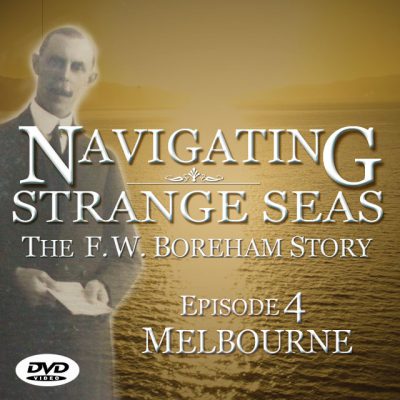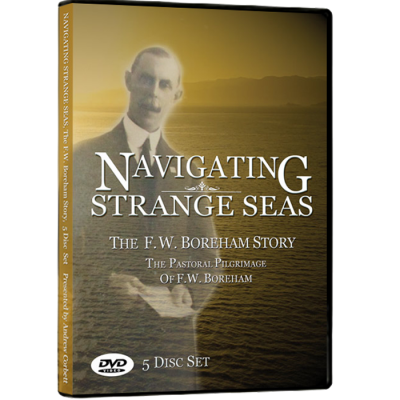
home > Books By FW Boreham > 1916, Faces In The Fire > Chapter 1, The Baby Among The Bombshells
PART I
I
THE BABY AMONG THE BOMBSHELLS
Everything depends on keeping up the supply of bombshells. It will be a sad day for us all when there are no more bombs to burst, no more shocks to be sustained, no more sensations to be experienced, no more thrills to be enjoyed. Fancy being condemned to reside in a world that is bankrupt of astonishments, a world that no longer has it in its power to startle you, a world that has nothing up its sleeve! It would be like occupying a seat at a conjuring entertainment at which the conjurer had exhausted all his tricks, but did not like to tell you so! When I was a small boy I used to be mildly amused by the antics of a performing bear that occasionally visited our locality. A sickly-looking foreigner led the poor brute by a string. Its claws were cut, and its teeth drawn. By dint of a few kicks and cuffs it was persuaded to dance a melancholy kind of jig, and then shamble round with a basket in search of a few half-pence. I remember distinctly that, as I watched the unhappy creature’s dismal performance, I tried to imagine what the animal would have looked like had no cruel captor removed him from his native lair. The mental contrast was a very painful one. Yet it was not half so painful as the contrast between the world as it is and a world that had run out of bombshells. A world that could no longer surprise us would be a world with its claws cut and its teeth drawn. Half the fun of waking up in the morning is the feeling that you have come upon a day that is brand new, a day that the world has never seen before, a day that is certain to do things that no other day has ever done. Half the pleasure of welcoming a new-born baby is the absolute certainty that here you have a packet of amazing surprises. An individuality is here; a thing that never was before; you cannot argue from any other child to this one; the only thing that you can predict with confidence about this child is that it will do things that were never done, or never done in the same way, since this old world of ours began. Here is novelty, originality, an infinity of bewildering possibility. Each mother thinks that there never was a baby like her baby; and most certainly there never was. As long as the stock of days keeps up, and as long as the supply of babies does not peter out, there will be no lack of bombshells. I visited the other day the ruins of an old prison. I saw among other things the dark cells in which, in the bad old days, prisoners languished in solitary confinement. Charles Reade and other writers have told us how, in those black holes, convicts adopted all kinds of ingenious expedients to secure themselves against losing their reason in the desolate darkness. They tossed buttons about and groped after them; they tore up their clothes and counted the pieces; they did a thousand other things, and went mad in spite of all their pains. Now what is this horror of the darkness? Let us analyse it. Wherein does it differ from blindness? Why did insanity overtake these solitary men? The horror of the darkness was not fear. A child dreads the dark because he thinks that wolves and hobgoblins infest it. But these men had no such terrors. The thing that unbalanced them was the maddening monotony of the darkness. Nothing happened. In the light something happens every second. A thousand impressions are made upon the mind in the course of every minute. Each sensation, though it be of no more importance than the buzz of a fly at the window-pane, the flutter of a paper to the floor, or the sound of a footfall on the street, represents a surprise. It is a mental jolt. It transfers the attention from one object to an entirely different one. We pass in less than a second from the buzz of the fly to the flutter of the paper, and again from the flutter of the paper to the sound of the footfall. Any man who could count the separate objects that occupied his attention in the course of a single moment would be astonished at their variety and multiplicity. But in the dark cell there are no sensations. The eye cannot see; the ear cannot hear. Not one of the senses is appealed to. The mind is accustomed to flit from sensation to sensation like a butterfly flitting from flower to flower, but infinitely faster. But in this dark cell it languishes like a captive butterfly in a cardboard box. If you hold me under water I shall die, because my lungs can no longer do the work they have always been accustomed to do. In the dark cell the mind finds itself in the same predicament. It is drowned in inky air. The mind lives on sensations; but here there are no sensations. And if the world gets shorn of its surprise-power, it will become a maddening place to live in. We only exist by being continually startled. We are kept alive by the everlasting bursting of bombshells.
I am not so much concerned, however, with the ability of the world to afford us a continuous series of thrills as with my own capacity to be surprised. The tendency is to lose the power of astonishment. I am told that, in battle, the moment in which a man finds himself for the first time under fire is a truly terrifying experience. But after awhile the new-comer settles down to it, and, with shells bursting all around him, he goes about his tasks as calmly as on parade. This idiosyncrasy of ours may be a very fine thing under such circumstances, but under other conditions it has the gravest elements of danger. As I sit here writing, a baby crawls upon the floor. It is good fun watching him. He plays with the paper band that fell from a packet of envelopes. He puts it round his wrist like a bracelet. He tears it, and lo, the bracelet of a moment ago is a long ribbon of coloured paper. He is astounded. His wide-open eyes are a picture. The telephone rings. He looks up with approval. Anything that rings or rattles is very much to his taste. I go over to his new-found toy, and begin talking to it. He is dumbfounded. My altercation with the telephone completely bewilders him. Whilst I am thus occupied, he moves towards my vacant chair. He tries to pull himself up by it, but pulls it over on to himself. The savagery of the thing appals him; he never dreamed of an attack from such a source. In what a world of wonder is he living! Bombs are bursting all around him all day long. A baby’s life must be a thrillingly sensational affair.
But the pity of it is that he will grow out of it. He may be surrounded with the most amazing contrivances on every hand, but the wonder of it will make little or no appeal to him. He will be like the soldier in the trenches who no longer notices 18the roar and crash of the shells. When Livingstone set out for England in 1856, he determined to take with him Sekwebu, the leader of his African escort. But when the party reached Mauritius, the poor African was so bewildered by the steamers and other marvels of civilization that he went mad, threw himself into the sea, and was seen no more. I only wish that an artist had sketched the scene upon which poor Sekwebu gazed so nervously as he stood on the deck of the Frolic that day sixty years ago. I suspect that the ‘marvels of civilization’ that so terrified him would appear to us to be very ramshackle and antiquated affairs. We lie back in our sumptuous motor-cars and yawn whilst surrounded on every hand with astonishments compared with which the things that Sekwebu saw are not worthy to be compared. That is the tragic feature of the thing. In the midst of marvels we tend to become blasé. It is not that we are occupying a seat at a conjuring entertainment at which the conjurer has exhausted all his tricks, and does not like to tell you so. On the contrary, it is like occupying a seat at a conjuring entertainment and falling fast asleep just as the performer is getting to his most baffling and masterly achievements. I like to watch this baby of mine among his bombshells. The least thing electrifies him. What a sensational world this would be if I could only contrive to retain unspoiled that childish capacity for wonder!
I shall be told that it is the baby’s ignorance that makes him so susceptible to sensation. It is nothing of the kind. Ignorance does not create wonder; it destroys it. I walked along a track through the bush one day in company with two men. One was a naturalist; the other was an ignoramus. Twenty times at least the naturalist swooped down upon some curious grass, some novel fern, or some rare orchid. The walk that morning was, to his knowing eyes, as sensational as a hair-raising film at a cinematograph. But to my other companion it was absolutely uneventful, and the only thing at which he wondered was the enthusiasm of our common friend. When Alfred Russel Wallace was gathering in South America his historic collection of botanical and zoological specimens, the natives of the Amazon Valley thought him mad. He paid them handsomely to catch creatures for which they could discover no use at all. To him the great forests of Bolivia and Brazil were alive with sensation. They fascinated and enthralled him. But the black men could not understand it. They saw no reason for his rapture. Yet his wonder was not the outcome of ignorance; it was the outcome of knowledge. Depend upon it, the more I learn, the more sensational the world will become. If I can only become wise enough I may recapture the glorious amazements of the baby among his bombshells.
Now let me come to a very practical application. Half the art of life lies in possessing effective explosives and in knowing how to use them. In the best of his books, Jack London tells us that the secret of White Fang’s success in fighting other dogs was his power of surprise. ‘When dogs fight there are usually preliminaries—snarlings and bristlings, and stiff-legged struttings. But White Fang omitted these. He gave no warning of his intention. He rushed in and snapped and slashed on the instant, without notice, before his foe could prepare to meet him. Thus he exhibited the value of surprise. A dog taken off its guard, its shoulder slashed open, or its ear ripped in ribbons before it knew what was happening, was a dog half whipped.’ Here is the strategy of surprise in the wild. Has it nothing to teach me? I think it has. I remember going for a walk one evening in New Zealand, many years ago, with a minister whose name was at one time famous throughout the world. I was just beginning then, and was hungry for ideas. I shall never forget that, towards the close of our conversation, my companion stopped, looked me full in the face, and exclaimed with tremendous emphasis, ‘Keep up your surprise-power, my dear fellow; the pulpit must never, never lose its power of startling people!’ I have very often since recalled that memorable walk; and the farther I leave the episode across the years behind me the more the truth of that fine saying gains upon my heart.
Let me suggest a really great question. Is it enough for a preacher to preach the truth? In a place where I was quite unknown, I turned into a church one day and enjoyed the rare luxury of hearing another man preach. But, much as I appreciated the experience, I found, when I came out, that the preacher had started a rather curious line of thought. He was a very gracious man; it was a genuine pleasure to have seen and heard him. And yet there seemed to be a something lacking. The sermon was absolutely without surprise. Every sentence was splendidly true, and yet not a single sentence startled me. There was no sting in it. I seemed to have heard it all over and over and over again; I could even see what was coming. Surely it is the preacher’s duty to give the truth such a setting, and present it in such a way, that the oldest truths will appear newer than the latest sensations. He must arouse me from my torpor; he must compel me to open my eyes and pull myself together; he must make me sit up and think. ‘Keep up your surprise-power, my dear fellow,’ said my companion that evening in the bush, speaking out of his long and rich experience.
‘The pulpit,’ he said, ‘must never, never lose its power of startling people!’ The preacher, that is to say, must keep up his stock of explosives. The Bishop of London declared the other day that the Church is suffering from too much ‘dearly beloved brethren.’ She would be better judiciously to mix it with a few bombshells.
And yet, after all, I suppose it was largely my own fault that the sermon of which I have spoken seemed to me to be so ineffective. There are tremendous astonishments in the Christian evangel which, however baldly stated, should fire my sluggish soul with wonder, and fill it with amazement. The fact that I listened so blandly shows that I have become blasé. I am like the soldier in the trenches who no longer notices the bursting shells about him. I am like the auditor who occupies a seat at the conjuring entertainment, but has fallen asleep just as the thing is getting sensational.
In one of his latest books, Harold Begbie gives us a fine picture of John Wyclif reading from his own translation of the Bible to those who had never before listened to those stately and wonderful cadences. The hearers look at each other with wide-open eyes, and are almost incredulous in their astonishment. Every sentence is a sensation. They can scarcely believe their ears. They are like the baby on the floor. The simplicities startle them. 23If only I can renew the romance of my childhood, and recapture that early sense of wonder, the world will suddenly become as marvellous as the prince’s palace in the fairy stories, and the ministry of the Church will become life’s most sensational sensation.
-

NAVIGATING STRANGE SEAS, The Dr. F.W. Boreham Story, Episode 1 – England (DVD)
$7.95 -

NAVIGATING STRANGE SEAS, The Dr. F.W. Boreham Story, Episode 2 – New Zealand (DVD)
$7.95 -

NAVIGATING STRANGE SEAS, The Dr. F.W. Boreham Story, Episode 4 – Melbourne (DVD)
$7.95 -

NAVIGATING STRANGE SEAS, The Pastoral Pilgrimage of Dr. F. W. Boreham – Blu ray Disc
$9.95




